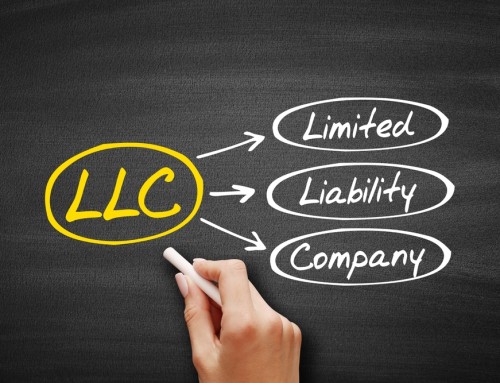Estate planning is an essential process that ensures your wishes are fulfilled after your death and that your loved ones are taken care of without unnecessary legal hurdles. In Arizona, probate is often a required process when a person dies without a proper estate plan. Understanding how probate works and how an effective estate plan can help you avoid it can save your family from a lot of stress and expense.
What Is Probate and When Is It Required?
Probate is the legal process by which a deceased person's assets are gathered, debts are paid, and the remaining assets are distributed to beneficiaries. This process is typically required if a person dies without a trust or if the value of their estate exceeds specific limits. In Arizona, probate becomes necessary if personal property exceeds $75,000 or if real estate exceeds $100,000 in value.
Q: Are there exemptions from probate in Arizona?
Yes, Arizona offers exemptions for smaller estates. If the deceased person’s estate is below $75,000 in personal property or below $100,000 in real estate, the family can use a small estate affidavit instead of going through probate. This streamlined process helps the heirs claim assets without the need for a full probate proceeding.
However, when an estate exceeds these limits, probate is mandatory, and a personal representative must be appointed by the court to manage the estate's distribution. The personal representative collects all assets, pays off any debts, and distributes the remaining assets to the rightful heirs.
How an Estate Plan Helps Avoid Probate
One of the best ways to avoid probate is to establish a trust. A trust allows your assets to be transferred directly to your beneficiaries upon your death, without the need for court involvement. Unlike a will, which must go through probate, a trust bypasses the legal system entirely, allowing for a quicker and more private distribution of assets.
A properly funded trust means that your property is already titled in the name of the trust, and therefore it doesn’t have to go through probate. This is especially important if you own real estate or other high-value assets that would otherwise require probate.
Another tool to avoid probate is to ensure that all assets are properly titled with designated beneficiaries. For example, adding “payable on death” (POD) designations to bank accounts and other financial assets allows these assets to be transferred directly to beneficiaries without probate.
The Role of Wills in Estate Planning
While a will is an important part of an estate plan, it does not help you avoid probate. A will only dictates how your assets are to be distributed, but it must be validated through probate. Having a will is still crucial, especially if you have minor children, as it allows you to name guardians for them.
However, to avoid probate, it is often recommended to use a trust in addition to a will. The trust helps bypass probate, while the will serves as a backup for any assets that were not transferred into the trust during your lifetime.
The Cost and Timeline of Probate in Arizona
Probate can be costly and time-consuming. In Arizona, even an uncontested probate typically costs around $3,500 and takes at least five months to complete. This timeline includes a mandatory four-month period during which creditors can make claims against the estate. During probate, the personal representative must also publish a notice in the local newspaper to notify any unknown creditors of the decedent's death.
By avoiding probate through a well-crafted estate plan, you can save your loved ones time, money, and stress.
How Community Property Impacts Probate
In Arizona, community property laws also play a significant role in estate planning and probate. Arizona is a community property state, meaning that all property acquired during a marriage is considered jointly owned by both spouses, unless it was acquired as a gift or inheritance. This distinction is crucial because it affects how assets are distributed upon death.
Q: What happens to community property if one spouse dies?
If the property is held as “community property with right of survivorship,” the deceased spouse's interest automatically passes to the surviving spouse without probate. However, if the property is not titled with the right of survivorship, it may be subject to probate.
Ensuring a Smooth Transfer of Assets
To ensure that your estate is handled according to your wishes, it is crucial to create a comprehensive estate plan that includes both a trust and a will, as well as other essential documents like a financial power of attorney, healthcare power of attorney, and living will. These documents not only help avoid probate but also ensure that your wishes are respected if you become incapacitated.
Take Action to Protect Your Family
At KEYTLaw, we are committed to helping Arizona residents create estate plans that protect their families and minimize the need for probate. Book a free consultation today by visiting keytlaw.com or calling us at 480-907-3303. Let us help you create a plan that provides peace of mind for you and your loved ones.
Article 2:
Cover Photo: KEYTlaw – Cover Photo.png
Title: Understanding Community Property and Estate Planning in Arizona
Estate planning in Arizona is often complicated by the state's community property laws. Arizona is one of only a few states that recognize community property, which can have a significant impact on how assets are distributed after death. Understanding the difference between community property and separate property is key to ensuring your estate plan is effective.
What Is Community Property?
In Arizona, community property is any property that a married couple acquires during their marriage, with a few exceptions. Gifts and inheritances received by one spouse during the marriage are considered separate property, as long as they are not commingled with community property.
For instance, if you receive an inheritance and deposit it into a joint bank account with your spouse, that inheritance is now considered community property. To keep it as separate property, you must maintain it in a separate account in your name only.
Q: What’s the difference between community property and community property with right of survivorship?
Community property with right of survivorship means that when one spouse passes away, their share of the property automatically goes to the surviving spouse without the need for probate. This can make the transfer of assets simpler and less stressful for the surviving spouse.
How to Properly Title Community Property
It is crucial to properly title assets to ensure they are handled according to your wishes. If you want to ensure that your spouse inherits certain assets without probate, you should hold those assets as community property with right of survivorship. This designation means that the property will automatically pass to the surviving spouse upon your death, avoiding probate.
Q: What happens if community property is not titled with right of survivorship?
If community property is not titled with right of survivorship, then the deceased spouse’s interest may need to go through probate before it can be transferred to the surviving spouse. This can delay the process and potentially lead to unnecessary complications.
Protecting Separate Property in Your Estate Plan
It is also important to understand how to protect separate property. If you have assets that you acquired before marriage or through inheritance, you should take steps to keep them as separate property. This includes keeping separate accounts and avoiding commingling funds.
In your estate plan, you can specify what happens to your separate property. For instance, you may want certain items to go to specific family members or friends. By including these details in your will or trust, you can ensure that your wishes are respected.
Ancillary Documents in Estate Planning
In addition to a will or trust, a comprehensive estate plan includes several ancillary documents that help manage both community and separate property. These documents include:
- Healthcare Power of Attorney: This document allows you to name someone to make medical decisions for you if you are unable to do so.
- Financial Power of Attorney: This document designates someone to handle your financial affairs if you become incapacitated.
- Living Will: This document outlines your wishes regarding end-of-life medical care.
These documents are crucial for ensuring that your wishes are respected and that your loved ones can easily manage your affairs if you become unable to do so.
Why Community Property Matters in Estate Planning
Community property laws in Arizona can complicate estate planning, especially for those who own significant assets or have been married more than once. Properly understanding and planning for community property can help you avoid probate, minimize taxes, and ensure that your wishes are honored.
For example, if you form an LLC in Arizona and only list yourself on the Articles of Organization, that does not mean the LLC is separate property. If the LLC was formed during the marriage and using community funds, it is likely considered community property. It’s important to consult with an estate planning attorney to properly structure ownership to align with your estate planning goals.
Take the Next Step in Protecting Your Assets
Creating an estate plan that addresses community property, separate property, and other critical issues is key to protecting your loved ones and ensuring a smooth transfer of assets. At KEYTLaw, we help Arizona residents navigate the complexities of estate planning and community property law.
To get started, book a free consultation by visiting keytlaw.com or calling us at 480-907-3303. Let’s work together to create a plan that provides you and your family with security and peace of mind.






